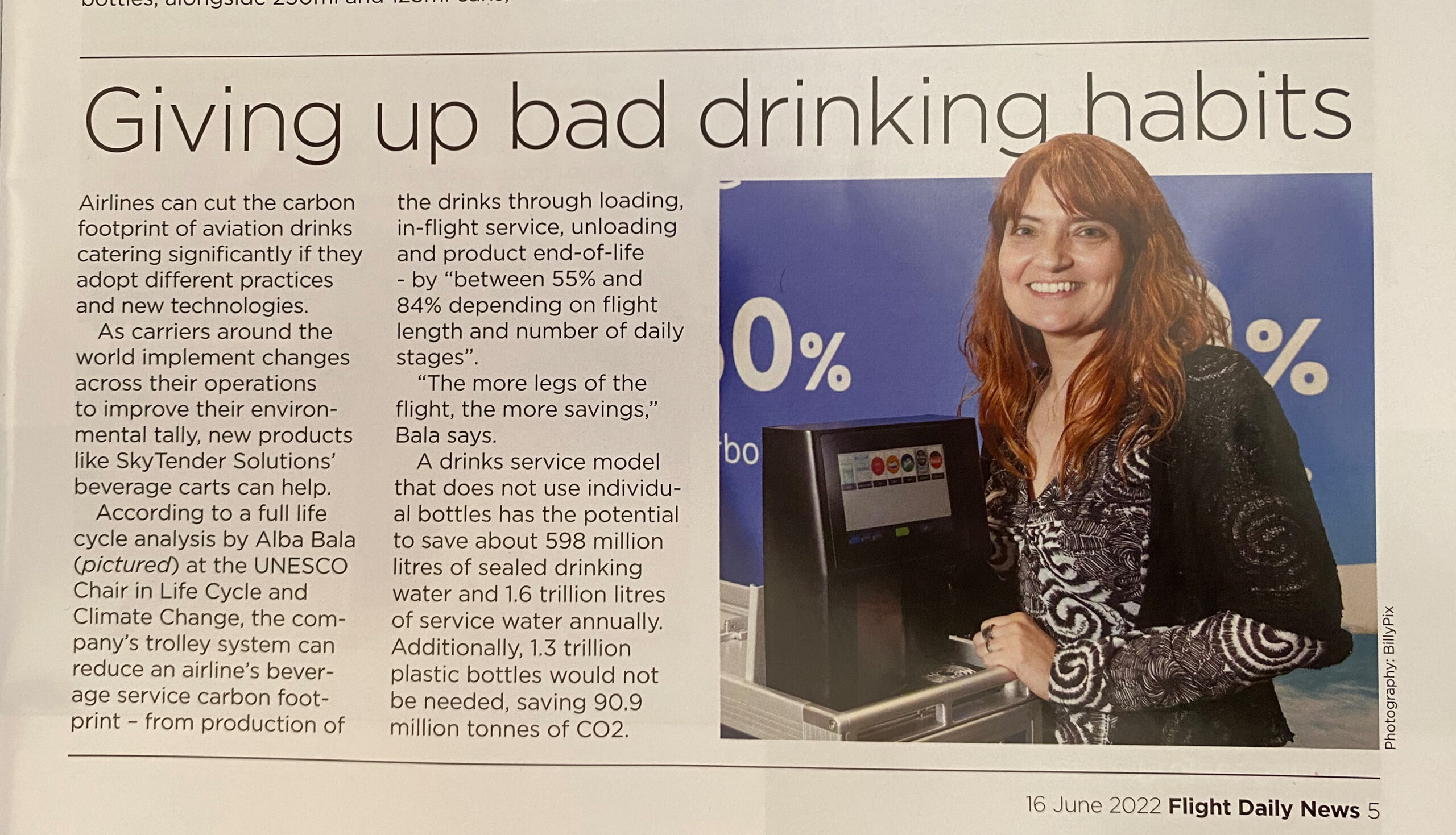Flight Global reports the release of the UNESCO Life Cycle Assessment study results at the SkyTender booth at WTCE 2022 in Hamburg, Germany.
Airlines can cut the carbon footprint of aviation drinks catering significantly if they adopt different practices and new technologies. As carriers around the world implement changes across their operations
to improve their environmental tally, new products like SkyTender Solutions’ beverage carts can help.
According to a full life cycle analysis by Alba Bala (pictured) at the UNESCO Chair in Life Cycle and Climate Change, the company’s trolley system can reduce an airline’s beverage service carbon footprint – from production of the drinks through loading, in-flight service, unloading and product end-of-life – by “between 55% and 84% depending on flight length and number of daily stages”.
“The more legs of the flight, the more savings,” Bala says.
A drinks service model that does not use individual bottles has the potential to save about 598 million litres of sealed drinking water and 1.6 trillion litres of service water annually. Additionally, 1.3 trillion plastic bottles would not be needed, saving 90.9 million tonnes of CO2.

